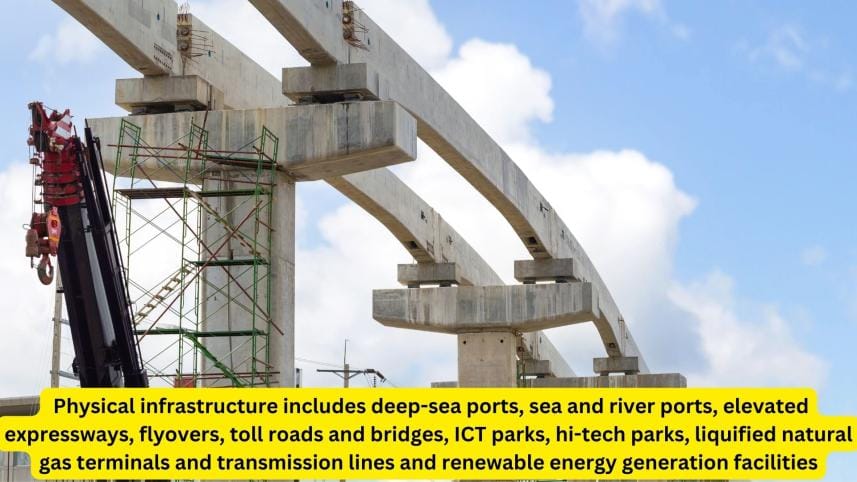Tax benefit on physical infrastructure unlikely to continue

The government may not extend the tax holiday for investors of physical infrastructure in the upcoming fiscal year as the revenue administration seeks to trim the list of tax-exempt items to attain higher collection targets, officials said.
Currently, the National Board of Revenue (NBR) provides a 10-year tax benefit on the income from physical infrastructure such as deep-sea ports, sea and river ports, elevated expressways, flyovers, toll roads and bridges, ICT parks, hi-tech parks, liquified natural gas terminals and transmission lines, and renewable energy generation facilities.
As per the Income Tax Act 2023, the NBR has to provide a tax break on the income from physical infrastructure if it begins commercial operations within June 2024.
However, the tax administration is unwilling to continue the tax exemption for any projects that begin commercial operations after June this year.
"We are considering the measures to reduce tax exemptions to augment collection," a senior official of the NBR said.
Such a move would mean that investors of such facilities may not enjoy the tax holiday from next fiscal year.
The tax administration started granting tax exemptions for physical infrastructure in July 2011 to encourage private investment and meet the country's infrastructure deficits.
It extended the benefit on several occasions since then.
At present, investors of such infrastructure enjoy a tax break on 90 percent of their incomes in the first two years after beginning commercial operations.
The tax exemption benefit on the income declines to 75 percent in the third year.
In the 10th year, investors get a tax break on 25 percent of their incomes, according to the law.
The NBR may be tasked with collecting Tk 4.80 lakh crore in fiscal year 2024-25, which would be 17 percent higher than the current year's target.
The tax administration's average annual growth in revenue collection has been 11 percent for the past five years.
The NBR has been under pressure to improve collection and thereby fulfil one of the conditions for a $4.7 billion loan approved by the International Monetary Fund last year.



 For all latest news, follow The Daily Star's Google News channel.
For all latest news, follow The Daily Star's Google News channel.
Comments